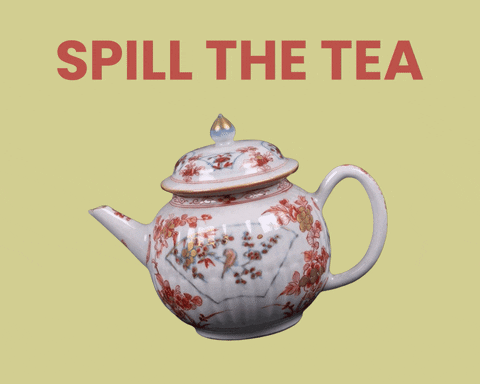The good side of gossip
Plus, how powerful is courtroom drama?
BRAIN WAVES
Do you want to know a secret? Gossip isn't all bad. A new UC Riverside study suggests that couples who gossip together are happier and have better relationships. Researchers had 76 couples wear recording devices that captured about 14 percent of their daily conversations and found that participants spent about 38 minutes a day gossiping on the whole. And 29 of those minutes were spent dishing the dirt with their romantic partners. Same-sex couples reported higher happiness levels than different-sex couples, and woman-woman couples both gossiped the most and reported the highest relationship quality. The study suggests that talking smack about others might actually strengthen romantic bonds by reinforcing that you're “on the same team.” This goes for both positive gossip (“What a great story she told at dinner!”) and negative gossip (“What a dumb story!”) As the study authors put it, “Negatively gossiping with one’s romantic partner on the way home from a party could signal that the couple’s bond is stronger than with their friends at the party, while positively gossiping could prolong the fun experiences.”
You can’t handle the truth! A former Supreme Court Justice once wrote, “There is almost nothing more convincing than a live human being who takes the stand, points a finger at the defendant, and says ‘That’s the one!’” Now, there’s some evidence to back up that intuition. In a study, participants watched mock trials and then answered survey questions. The researchers tested whether eyewitnesses dramatically identifying the defendant during the trial itself (á la pointing and declaring something like “That’s the one!”) affected the judgments of jurors. The findings? Fifty-one percent of people voted guilty when there was an in-court identification versus only 33 percent without it. This is despite the scientific evidence that eyewitness testimony can be unreliable. The authors speculate that the vividness of the jurors seeing the identification live in front of them might make it more persuasive.
Lesson learned. Have you ever fallen asleep in school or during a work meeting? Maybe you felt your eyes glaze over as your boss or a teacher droned on and on about a topic that had no relevance to you. What’s missing from these classrooms and conference rooms is engagement: a state of being absorbed, alert, and eager to learn. Listen to learn more.
ON THE HIDDEN BRAIN PODCAST
The Trauma Script: When tragedy strikes, it’s natural to be devastated. But psychologist George Bonanno finds that many of us recover from life’s blows more quickly than we might expect. This week, we talk with Bonanno about his research and why it has changed how many scientists think about trauma and resilience.
ON THE MY UNSUNG HERO PODCAST
Patrick Furlong’s story: This week on My Unsung Hero: After his dad left, Patrick Furlong’s guidance counselor taught him to tie a tie — and showed him he wasn’t alone. Years later, he passed that lesson on to his own son.
Don’t forget to send us the story of your unsung hero! Record a voice memo on your phone and email it to myunsunghero@hiddenbrain.org.
HIDDEN BRAIN ON TOUR!
The Hidden Brain tour continues, but we will be wrapping up in just a few short months. Don’t miss your chance to get tickets! Join our host Shankar Vedantam as he brings seven key insights from the first decade of Hidden Brain to the stage. Our final stops:
MIND GAMES
What can go through glass without breaking it?
LAST WEEK’S PUZZLE
The day before two days after the day before tomorrow is Saturday. What day is it today?
The answer: Friday. The “day before tomorrow” is today; “the day before two days after” is really one day after. So if “one day after today is Saturday,” then it must be Friday.
A MOMENT OF JOY
Have an idea for Hidden Brain? A story you want to share with us? Send an email to ideas@hiddenbrain.org. Listen to us on Spotify, Apple, Amazon Music or your favorite podcast platform.


